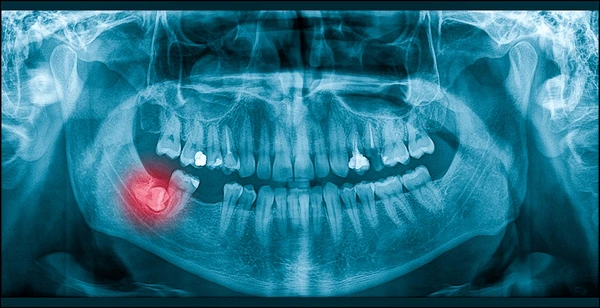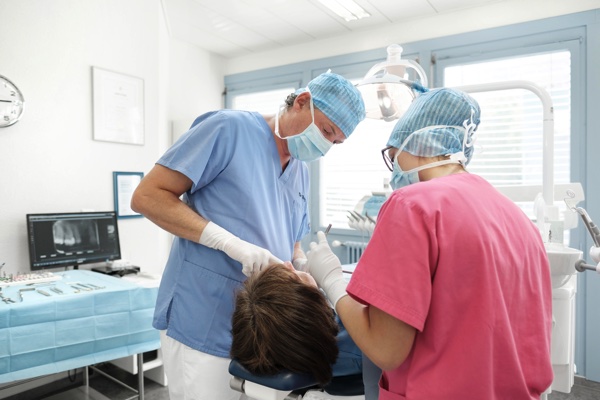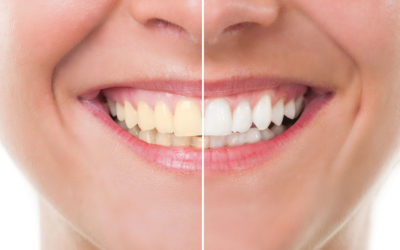
Wisdom teeth surgery: how to prepare?
Wisdom teeth extraction is one of the most common oral surgery procedures, especially for teenagers and young adults. Adequate preparation for extraction not only facilitates a smooth surgical procedure, but also plays an essential role in rapid recovery.
Whether it's limiting post-operative pain, minimizing swelling or reducing the risk of infection, every step counts to ensure an optimal result.
Why have wisdom teeth extracted?
Wisdom teeth can lack room to grow properly, leading to complications such as inflammation, infection or recurring pain. When they become problematic, surgery by an experienced dental or maxillofacial surgeon is often the recommended solution.
Preventing long-term complications is one of the main reasons for considering extraction. Sometimes, surgery is even proposed as a preventive measure, especially if a preliminary X-ray reveals a risk of displacement of neighboring teeth or other potential disorders. Center Dentaire Lancy supports each patient with personalized care right from this stage.
How can I prepare for wisdom teeth surgery?
Good preparation before the operation actively contributes to overall comfort and limits unforeseen events during and after wisdom teeth surgery. We strongly advise you to follow all the recommendations made during the consultation with the practitioner in charge, as is the practice at Centre Dentaire Lancy.
Consultation and preliminary examinations
An appointment with a specialist in oral or maxillofacial surgery enables a precise assessment of the situation. The surgeon will analyze your mouth and take preliminary x-rays to determine the exact position of your wisdom teeth. This diagnosis helps to anticipate any sensitive points or technical difficulties to be managed during surgery.
During this interview, it is important to mention any current medical treatment, allergies or anaesthetic history. This transparency guarantees the right choice between local or general anesthesia, adapted to your personal case.
Pre-procedure instructions
The professional usually gives a set of practical advice to be followed before the operation. For example, in the case of general anaesthesia, you may be asked to come on an empty stomach, or to avoid certain medications that increase the risk of bleeding. Being accompanied by a loved one makes it easier to return home, as alertness may be temporarily impaired by the anaesthetic and painkillers prescribed.
The day before surgery, give yourself time to rest. Taking a few days off helps optimize post-operative recovery and promotes a serene convalescence.
Procedure for wisdom teeth surgery
Surgical removal of wisdom teeth is usually performed under local anesthetic. General anesthesia is reserved for complex cases or when the patient is highly anxious. At Centre Dentaire Lancy, every protocol is individualized to guarantee safety and peace of mind.
Typical intervention steps
Here's how this type of procedure is usually performed in a dental practice:
- Administration of anesthesia according to established protocol
- Gum incision to access the tooth
- Separation of tooth into several fragments (if impacted or difficult to access)
- Careful extraction and suturing of soft tissue if necessary
The duration of the operation varies according to the complexity and number of teeth involved. During the procedure, no pain is felt, only a sensation of pressure that can be surprising but not uncomfortable.
Anesthesia and safety during extraction
The use of local anaesthetic ensures rapid recovery and limits side effects. The surgeon carefully monitors any unusual reactions and adapts the procedure to maintain patient comfort.
For those who dread the procedure, discussing it with their practitioner opens up the possibility of complementary solutions, such as mild sedatives, to help them live the experience more calmly.

Recovery management and post-operative advice
After wisdom teeth extraction, the focus is on managing pain, reducing swelling and preventing complications such as inflammation, infection or bleeding. Strict adherence to post-operative instructions will significantly speed up healing.
Immediate advice after surgery
Adopting a few precautions as soon as you leave the dental office or center significantly improves comfort:
- Apply ice to the external area to limit swelling
- Avoid spitting or rinsing the mouth vigorously in the first few hours.
- Watch for signs of inflammation or infection such as fever or purulent discharge
The right diet, with soft, fresh foods, promotes healing. Alcoholic or hot beverages are not recommended to avoid aggravating discomfort.
Medication and oral hygiene
A medication regimen including analgesics, anti-inflammatories and sometimes antibiotics often accompanies post-operative management. It is crucial to adhere to the prescribed doses and schedules, taking into account any contraindications discussed with the dental surgeon.
Oralhygiene remains essential, even after surgery. Use a soft brush and avoid the extracted area for a few days. Gentle mouthwashes are often recommended to limit the risk of infection and facilitate tissue repair.
Possible complications and effective treatment
Most patients get through the post-operative period without major incident, but some complications may arise. Careful monitoring is the best way to deal with them:
- Appearance of alveolitis( delayed localinfection )
- Persistent bleeding lasting more than a few hours
- Prolonged difficulty opening mouth
- Temporary tingling or numbness of the tongue or lower lip
In the presence of these symptoms, early contact with the practitioner ensures rapid management and limits the need for more extensive treatment. The majority of complications respond positively to additional care provided by the oral surgeon.
A few simple gestures can also improve healing: get plenty of rest, stay well hydrated and avoid smoking, as it slows down the healing process.
Wisdom teeth surgery at Centre Dentaire Lancy
Frequently asked questions about wisdom teeth surgery
How long does it take to recover from wisdom teeth extraction?
As a rule, the acute recovery phase lasts about a week. Swelling and pain gradually diminish after three to five days. It often takes two weeks to fully regain normal function of the mouth. Certain habits, such as avoiding strenuous physical effort and eating an appropriate diet, can speed up this process.
What are the best strategies for limiting pain after surgery?
Regular application of ice cubes to the cheek, taking painkillers as prescribed by the dental surgeon, and eating lukewarm or cold food are among the most effective measures. Avoiding chewing on the operated side and maintaining gentle oral hygiene also limit irritation.
- Apply ice for thirty minutes every hour for the first day.
- Take painkillers as soon as the first twinges of pain appear
- Eat liquid or semi-liquid foods that are easy to swallow
What foods to choose after wisdom teeth extraction?
Following surgery, it's best to adopt a soft, cold diet to avoid damaging the gums and sutures. Cold compotes, yoghurts, purées and soups are recommended for the first few days. Gradually reintroduce solid textures, while remaining attentive to the slightest discomfort.
How soon should I seek medical advice after wisdom teeth surgery?
Professional advice is recommended in the event of fever, heavy bleeding lasting more than eight hours, increasing swelling or unexpected general malaise. A rapid response to these signals can prevent most complications and optimize treatment of problems such as infection or alveolitis.
- Persistent fever over 38°C
- Difficulty breathing or intense unrelieved pain
- New or aggravated loss of facial sensitivity
Discover also the Centre Dentaire Chêne-Bourg and the Centre Dentaire Champel





